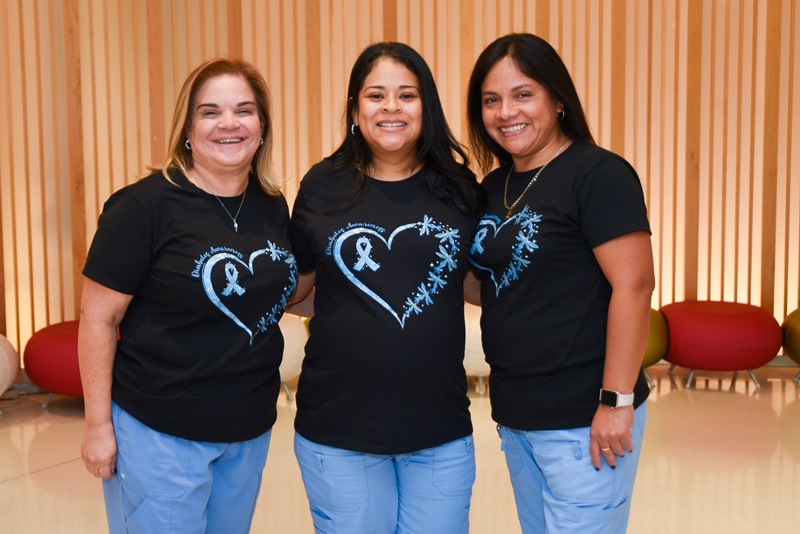Diabetes is a chronic health condition that affects how your body turns food into energy. Although millions of people are diagnosed with diabetes, there are still misconceptions about the condition. Amada Rico, BSN, RN, and Diabetes Nurse Navigator at Nicklaus Children’s Hospital, explains common concerns she receives from patients about diabetes.
1. Myth: I did not feed my child the right foods, and that is why they developed diabetes.
Reality: There are two types of diabetes. Type 1 Diabetes (T1D) is often diagnosed in early childhood or young adults. With T1D, the body does not produce enough insulin because of genetic disposition or as an autoimmune response. Type 2 Diabetes (T2D), when the body has higher than normal blood sugar levels, is primarily associated with being overweight and more predominant in adults. However, T2D is being seen more often in overweight children and teenagers, either caused by genetics or lifestyle choices.
2. Myth: Now that my child has diabetes, they can no longer have carbohydrates.
Reality: Children diagnosed with T1D or T2D can still have carbohydrates. In fact, carbohydrates are necessary for energy and healthy growth. Complex carbohydrates are the best options for T1D and T2D.
3. Myth: I do not want my child to use insulin; it will lead to more complications or death.
Reality: Insulin is a natural hormone that the pancreas produces by beta cells. We need insulin to survive, and with T1D, there is little to no insulin production. Insulin injection does not cause complications. Uncontrolled diabetes causes complications.
4. Myth: Since my child has diabetes, they will not be able to have a normal life.
Reality: Children with diabetes can continue to do the same activities as before getting diagnosed. However, children with T1D will have to make lifestyle modifications, such as choosing food wisely and making sure insulin needs are met.
The Pediatric Diabetes Treatment Center at Nicklaus Children’s is dedicated to providing personalized treatment and management of diabetes for every child. For more information visit: https://www.nicklauschildrens.org/medical-services/endocrinology-and-diabetes/programs/diabetes-treatment-center.

From left to right: Diabetes Educators: Mercedes Pons, Amada Rico, and Nelly Santos.